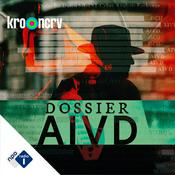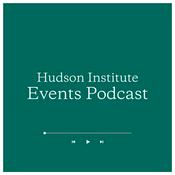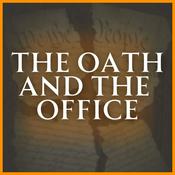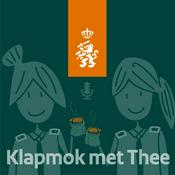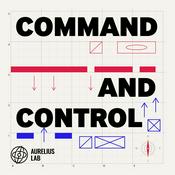90 afleveringen
- A new book edited by Amos Fox and Franz Stefan Gady picks apart the concept of Multi Domain Operations in forensic detail. A collection of world class scholars and practitioners demystify the idea of MDO and airs just some of the key problems that lie within the 'Big Hand, Small Map' approach to military operations. From a lack of a theory of success, a failure to address tactical concerns, an agnostic view of adversaries, and some deep philosophical flaws, one wonders why Western leaders continue to be so besotted with MDO as a way of fighting. According to Amos and Franz: it just wont work.
- Have Europeans become desensitized to Moscow's actions? 2025 saw Moscow fly armed drones into Poland; aerial incursions in Estonia, Denmark, Finland, Norway, Germany, and The Netherlands; seaborne and subsurface reconnaissance and attacks on the seabeds of the Atlantic Ocean, North, Baltic, and Norwegian seas; numerous incidents of water poisoning in Germany; parcel bombs being sent through the courier system; propaganda, cyber, information attacks and disinformation campaigns across European outlets; armed military personnel crossing Europe's borders; power outages across European countries; and political interference in most elections. President Putin has been orchestrating campaigns of sabotage, subversion, and attacks on most European states for 12 months (and hence attacks against the global economy), as well as continuing his long conventional military campaign that seeks the end of Ukraine as a country. According to Keir Giles we can expect more of the same in 2026.
- How do defence companies fund growth when the orders from politicians have been promised but the cash isn't forthcoming? Want to build a new factory to double Europe's 155mm ammo production, or tank fleet, or - heavens forbid - drones? Great - but where does the money come from for the infrastructure? Why don't existing MFIs across Europe fill that space? And what might a dedicated defence, security, and resilience offer governments as well as industry? Former Brigadier General Robbie Boyd, now on the Senior Leadership team for the development of the new DSR Bank, explains all. This episode allows those in the national security community who don't have a deep understanding of the financial sector to understand the potential offered by a dedicated banking organisation for defence. Building off the ideas of a NATO bank, and linked directly to the rebuilding of NATO's failed deterrence posture, the DSR bank feels a bit like a game-changer.
- A long held military truism is about commanding the high ground in any fight: often regarded as a precursor to victory. In the days of digital evangelism, much is made of this tenet in a metaphorical sense: there are claims that controlling the digital high ground will guarantee success. But warfare continues to require operating and fighting in physical terrain. In recent conflicts, few forces have been able to avoid fighting in mountains: the prevailing forces usually exploit mountains as the literal high ground. In the Kargil War, Nagorno-Karabakh, Kashmir, Afghanistan, and in Ukraine, as well as in resistance operations by the Kurds, mountain warfare has been a significant feature in fighting.
Mountain warfare involves mobility (skiing, snowshoeing, dogs, mules, sledges, et al), mountaineering (ascending, roped or free climbing, traverses, rappelling, etc), cold weather survival (including avalanche preparation), and operating at height. It is also warfare: the requirements are not simply surviving and operating in cold weather or high environments but to contest, challenge, and fight in these conditions. Warfare in such environments cannot simply be bases and patrols, they do (and will continue to) entail combat operations.
The history of human conflict does indeed demonstrate the advantages in controlling the high ground. The literal high ground. The realities of mountain and cold weather warfare – and the C2 element of that – cannot be escaped. Which is why so many states retain trained, equipped, and specialist formations to perform this task. They are not simply specialist light infantry: they offer skills that enable success in the extreme terrains.
Lance Blythe talks about his new(ish) book, Ski, Climb, Fight: The 10th Mountain Division and the Rise of Mountain Warfare. - The disorderly arrival of Artificial Intelligence (AI) to the battlefield foretells of what is to come. The similarities to the hype around cyber warfare in the 2010s is all too clear. Yet the promise of profound change to warfare because of AI (and autonomy) is to be found everywhere. What is the reality? What will battlefields feel like? When will AI (in all its forms) arrive)? How do we know it will work as promised? What guarantees are there? Who checks the delivery? How can we derisk some of the (existential) threats that AI poses? Who is leading, and who is in charge? Rob Wilson, defence tech guru, addresses just some of these issues. We end up cracking open a can of worms, or perhaps Pandora's box.
Meer Overheid podcasts
Trending Overheid -podcasts
Over This Means War
Conversations about contemporary warfare and what it means for the future of fighting. Each episode will look at how wars are being fought around the world today, whether (and why) this is important, and what it all might mean for militaries and national security in the coming decades.
Podcast websiteLuister naar This Means War, De Dienst en vele andere podcasts van over de hele wereld met de radio.net-app
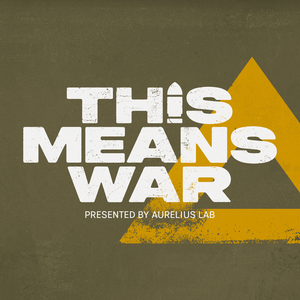
Ontvang de gratis radio.net app
- Zenders en podcasts om te bookmarken
- Streamen via Wi-Fi of Bluetooth
- Ondersteunt Carplay & Android Auto
- Veel andere app-functies
Ontvang de gratis radio.net app
- Zenders en podcasts om te bookmarken
- Streamen via Wi-Fi of Bluetooth
- Ondersteunt Carplay & Android Auto
- Veel andere app-functies


This Means War
Scan de code,
download de app,
luisteren.
download de app,
luisteren.



